Global report on how Covid-19 is affecting wave pools and surf parks
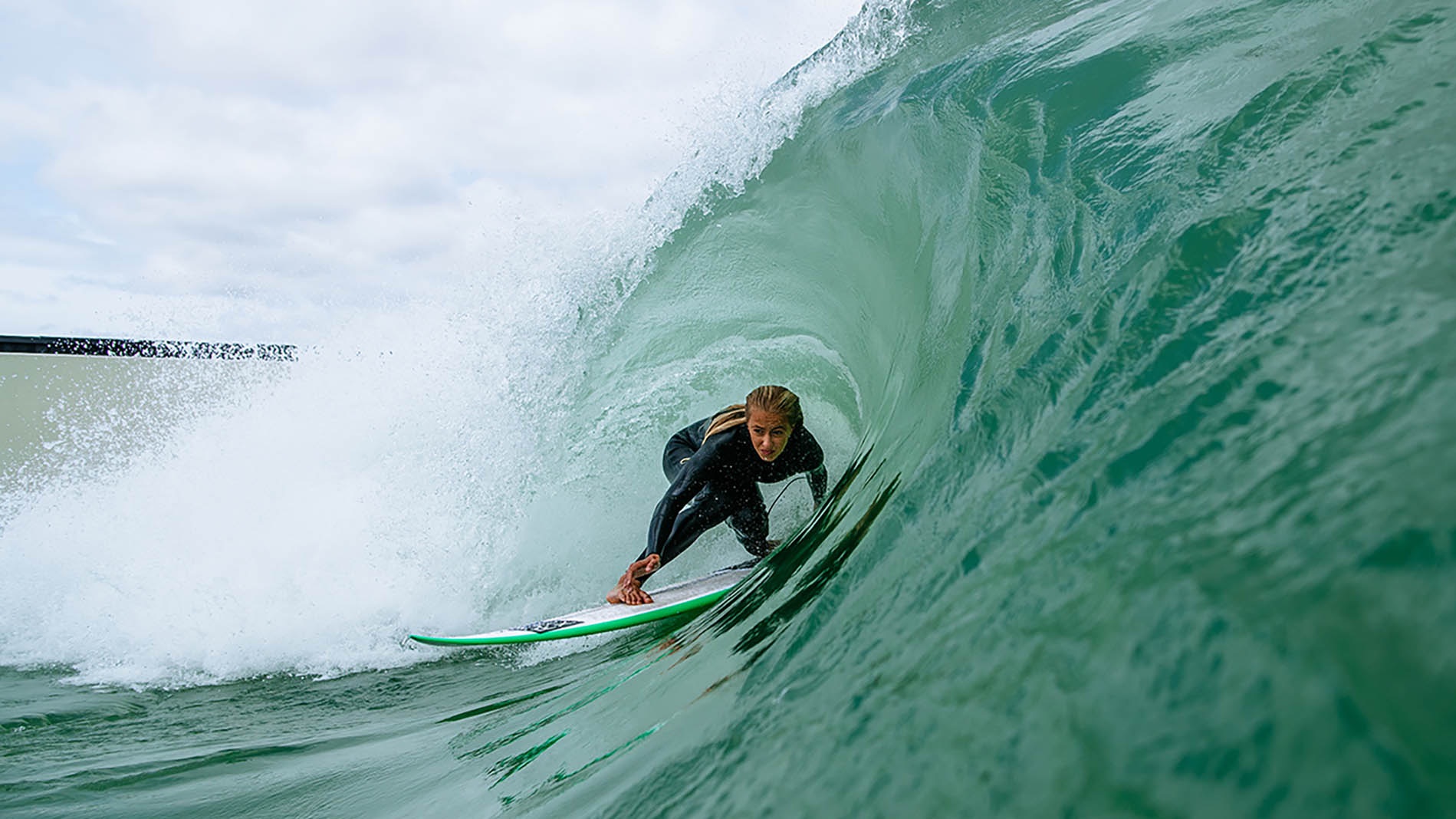
Wave pool operations have shut down at Urbnsurf, The Wave and BSR Surf Resort, with the cartoon reality of New Jersey’s Far Far A Bay dimmed along with the rest of the world’s shopping malls. But the impact of the lockdown across the burgeoning wave-pool sphere extends far beyond these temporary gate closures.
WavePoolMag interviewed the world’s wavemakers to see if COVID-19 would skewer planning and construction (Spoiler: it seems OK for the present) and find out what wavemakers are doing during the downtime. We also explored where government aid fits into the picture and in the process stumbled upon how the pandemic could spur a surf park building boom as governments rush to reconstruct local economies with new works projects and job-creation programs.
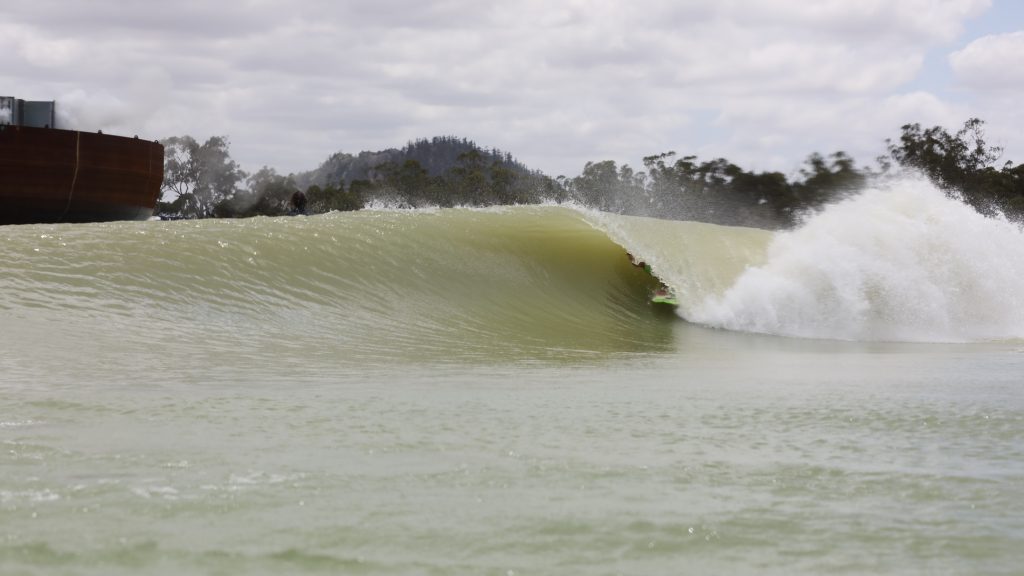
Wave pools close around the world
While wave pools in more clearly regulated parts of the world like England and Australia easily complied with closing, the rules were more opaque in frontier-spirited Waco Texas.
“At any given time, we would have no more than 10-12 people spread across 100 acres, well within the suggested number of persons per area,” said Ashley Darling of BSR Surf Resort. “We took measures to sanitize all high-touch point areas every 15 minutes as well as sanitized rental equipment between guests. We were operating under the impression that as an outdoor park, not only were we abiding by the suggested regulations but that we were an essential business.”
In the USA safety measures are done on a state-by-state basis with few federal mandates. The US government currently is letting states make their own rules and fend for themselves during the crisis. As such, Darling says that Texas asked BSR to stay closed until April 21, an extension from the original April 6 date.
“To that end, we are abiding by the regulations and can’t wait to reopen to our regulars and the greater surfing public.”
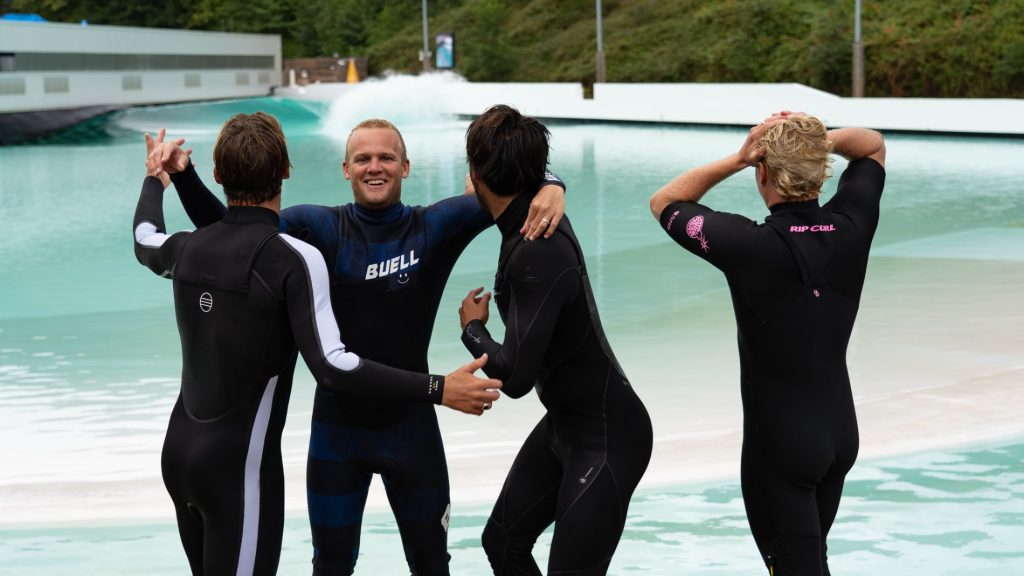
Is Coronavirus disrupting project plans and construction?
So while we know we can’t surf machine-made waves until this pandemic is over, we wondered if Coronavirus will effectively push back opening dates for the many pools in the thick of the planning process.
“This is obviously a major crisis all across the world and people’s health must always come before business needs,” said Sean Young Destination Developer Advisor at Wavegarden. “We have many projects in the design and feasibility stage of development and our team is able to continue to work on these projects to help move them towards the construction phase.”
Most planning work for a wave pool is done in paperwork. Falling in line with the rest of workers worldwide, the process of design, submitting plans and documents can be done remotely. However, it’s a bit more tricky for the pools pouring concrete and installing machines as guidelines vary from country-to-country (or state-to-state in America).
Young confirmed that Wavegarden projects under construction in Korea, Switzerland and Brazil are continuing without delay.
In California, the current rules allow for construction to be done as long as social distancing guidelines are respected, which means max 10 or fewer workers staying at least six feet apart.
California’s construction and building lobby pressured the State to change the wording on building guidelines during the pandemic. The new guides allow work to continue refitting hospitals, hotels and buildings for crisis needs. Wave pool projects in California benefit under this stipulation as well.
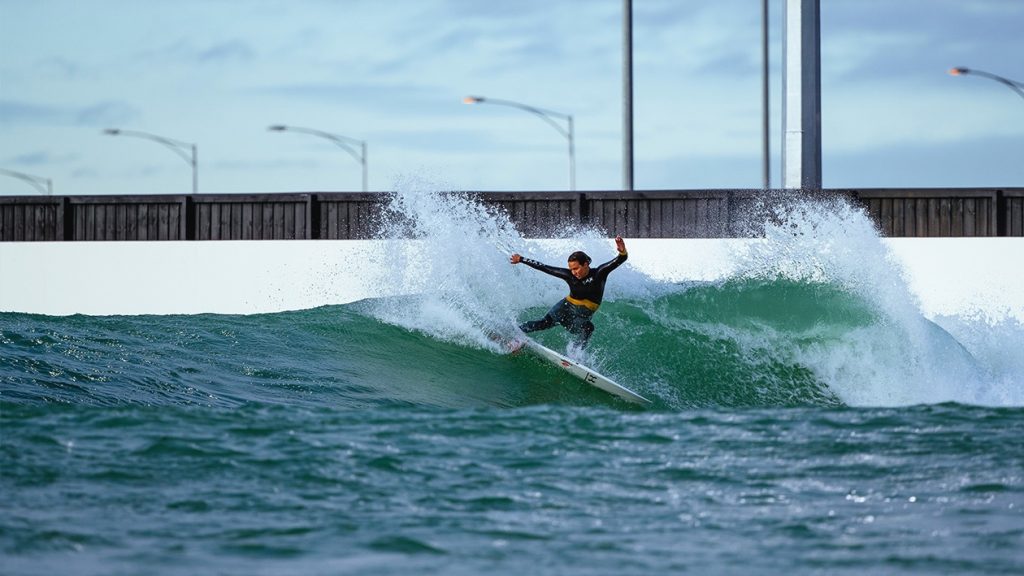
What will the government help with?
6.65 million Americans filed for unemployment last week alone, with the hardest-hit sectors being in travel, retail and restaurant – all components of a fully functioning surf park. Lifeguards, cashiers, cooks, baristas, coaches and others can’t work if no one is surfing. But there is clear government assistance to help some ventures.
“The Victorian and Australian governments have provided a range of support options for small and medium enterprise businesses like ours, including paid assistance for employees and tax concessions,” said Andrew Ross Founder of Urbnsurf. “We’re investigating these at the moment, as we want to do everything we possibly can to help and support our team.”
Like many businesses around the world, Ross is also using the break to refine and improve his product.
“It had been an incredibly busy launch period for us with the park heaving with stoked guests,” added Ross. “With a bit of a breather now, it gives us time to collate member and guest feedback; we are developing new functionality for our website and booking engine; designing new products and experiences to launch when we re-open.”
Ross added they are also undertaking preventative maintenance to keep the lagoon and Wavegarden wave generator in top condition and planning events for Summer 2020/2021.
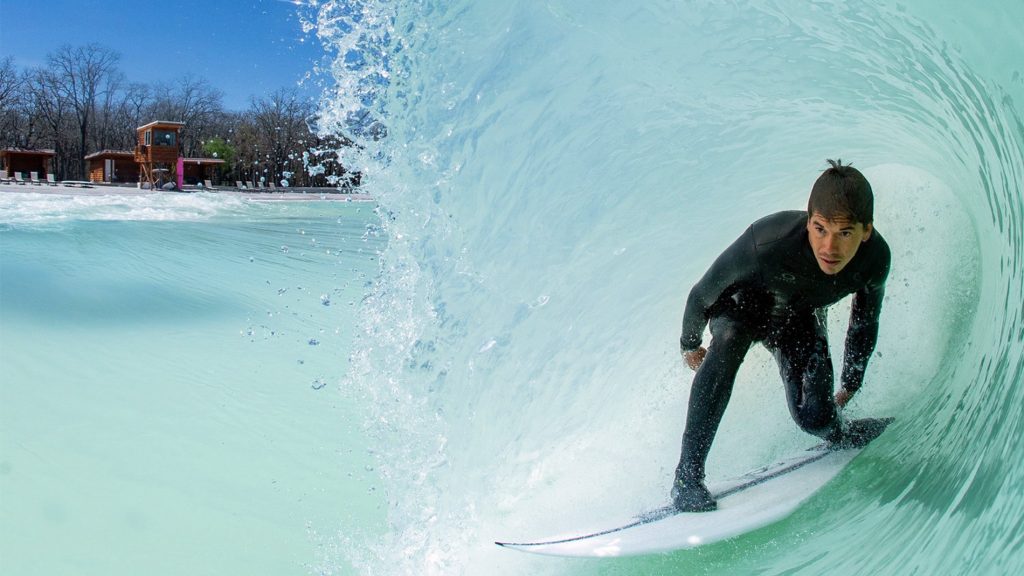
How Coronavirus could reshape the wave pool landscape
One possible uptick from all of this is how the public and local governments will view wave pools post-pandemic. The elite country-club impression could fade as pools are seen anew as vital economic rebuilders of local communities – skate parks with daily economic drivers.
“Whilst the current global situation is the most difficult faced by our generation, it may bring with it the biggest opportunities ever seen,” said Aaron Trevis, Founder of Surf Lakes. “There has been an increase in government conversations relating to the fact that we can create a leading piece of sporting, community and tourism infrastructure, which can help the rebuild efforts post COVID-19.”
Trevis speaks of government stimulus funding into projects and how it will drive immediate jobs through construction and create the kind of infrastructure that generates a long-term economic boost with new service jobs.
“The community wins, by having jobs, waves and beaches,” he added. “Let’s hope we all act wisely through ‘the valley’, and navigate well on the other side, to get it right for the next generation of surf communities”
Something this pandemic has put into focus for surfers is what’s important in life. And oddly for the first time, surfing doesn’t top the list. Family, shelter, access to healthcare and the global community effort to kill this virus all top the list. But beyond the refreshed greater-good-for-humankind perspective we still realize how important surfing is.
As a friend recently pointed out to us, she has never, ever missed the act of surfing as much as she does now. From the Basque region of hard-hit Spain, Sean Young confirmed this same sentiment is in line with Wavegarden’s findings.
“We know for certain that people will want to surf even more once this all comes to an end.”
Related Coverage
